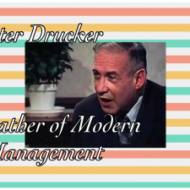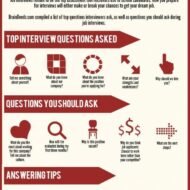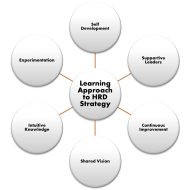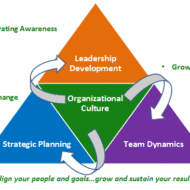Posted by Managementguru in Motivation, Quotes and Quotes Only
on Feb 7th, 2015 | 0 comments

Top 50 Quotes from Peter Drucker Peter Drucker is known as the father of modern management. A prolific writer, business consultant and lecturer, he introduced (rather re-invented) many management concepts that have been embraced by corporates all over the world. TOP 50 MARKETING AND SALES QUOTES This modern “Managementguru” has delivered timeless and time-tested ideas on management, leadership, change, education, motivation, marketing and what-not. A lot of companies are successfully functioning based on Peter Drucker’s management concepts. What follows is a compilation of Peter Drucker’s sayings and messages to the management fraternity. His open and result-driven thought process is what attracts me the most. “Doing the right thing is more important than doing the thing right.” “If you want something new, you have to stop doing something old.” “There is nothing quite so useless as doing with great efficiency something that should not be done at all.” “What gets measured gets improved.” “Results are gained by exploiting opportunities, not by solving problems.” “So much of what we call management consists of making it difficult for people to work.” “People who don’t take risks generally make about two big mistakes a year. People who do take risks generally make about two big mistakes a year.” “Meetings are by definition a concession to a deficient organization. For one either meets or one works. One cannot do both at the same time.” “Long-range planning does not deal with the future decisions, but with the future of present decisions.” “Management is doing things right. Leadership is doing the right things” “The best way to predict your future is to create it” “The most important thing in communication is to hear what isn’t being said.” “Unless commitment is made, there are only promises and hopes; but no plans.” “No one learns as much about a subject as one who is forced to teach it.” “Efficiency is doing the thing right. Effectiveness is doing the right thing.” “Whenever you see a successful business, someone once made a courageous decision.” “The leaders who work most effectively, it seems to me, never say “I.” And that’s not because they have trained themselves not to say “I.” They don’t think “I.” They think “we”; they think “team.” They understand their job to be to make the team function. They accept responsibility and don’t sidestep it, but “we” gets the credit. This is what creates trust, what enables you to get the task done.” “The purpose of business is to create and keep a customer.” “Business has only two functions — marketing and innovation.” “Your first and foremost job as a leader is to take charge of your own energy and then help to orchestrate the energy of those around you. “Plans are only good intentions unless they immediately degenerate into hard work.” “Innovation is the specific instrument of entrepreneurship…the act that endows resources with a new capacity to create wealth.” “Trying to predict the future is like trying to drive down a country road at night with no lights while looking out the back window. “ “A manager is responsible for the application and performance of knowledge. “ “Strategy is a commodity, execution is an art.” “The aim of marketing is to know and understand the customer so well, the product or service fits him and sells itself.” “A person can perform only from strength. One cannot build performance on weakness, let alone on something one cannot do at all.” “Management by objective works – if you know the objectives. Ninety percent of the time you don’t. “Most discussions of decision making assume that only senior executives make decisions or that only senior executives’ decisions matter. This is a...

Posted by Managementguru in Human Resource, Quotes and Quotes Only, Training & Development
on Jul 6th, 2014 | 0 comments

Popular HR Quotes by Industry Experts and Management Scholars We have compiled 50 top notch hr quotes from doyens in the field of business and management that will sure fire inspire you with creative ideas. 1. “Great Vision Without Great People Is Irrelevant.” -Jim Collins, Good To Great 2. “Human Resources Isn’t A Thing We Do. It’s The Thing That Runs Our Business.” -Steve Wynn, Wynn Las Vegas 3. “You Need To Have A Collaborative Hiring Process.” -Steve Jobs, Apple 4. “You Can’t Teach Employees To Smile. They Have To Smile Before You Hire Them.” -Arte Nathan, Wynn Las Vegas 5. “Never Hire Someone Who Knows Less Than You Do About What He’s Hired To Do.” -Malcolm Forbes, Forbes Top 50 HR Quotes 6. “When Hiring Key Employees, There Are Only Two Qualities To Look For: Judgement And Taste. Almost Everything Else Can Be Bought By The Yard.” John W. Gardner 7. “Recently, I Was Asked If I Was Going To Fire An Employee Who Made A Mistake That Cost The Company $600,000. No, I Replied, I Just Spent $600,000 Training Him. Why Would I Want Somebody To Hire His Experience?” -Thomas John Watson Sr., Ibm 8. “It’s More Than Just Selling Pizzas. It’s Being A Good Fit For The Community. We Hire Based On The Betterment Of The Community As Much As Anything.” -Mark Starr, David’s Pizza. 9. “You Can Have The Best Strategy And The Best Building In The World, But If You Don’t Have The Hearts And Minds Of The People Who Work With You, None Of It Comes To Life.” -Renee West, Luxor And Excalibur Hotel 10. “I am convinced that nothing we do is more important than hiring and developing people. At the end of the day you bet on people, not on strategies.” -Lawrence Bossidy, Ge CURRENT TRENDS IN HRD 11. “Do Not Hire A Man Who Does Your Work For Money, But Him Who Does It For The Love Of It.” -Henry David Thoreau, Life Without Principle 12. “If You Think Hiring Professionals Is Expensive, Try Hiring Amateurs” -Anonymous 13. “The Key For Us, Number One, Has Always Been Hiring Very Smart People.” -Bill Gates, Microsoft 14. “Time Spent On Hiring Is Time Well Spent.” -Robert Half 15. “I Hire People Brighter Than Me And Then I Get Out Of Their Way” -Lee Iacocca, Ford 16. “You Cannot Push Anyone Up The Ladder Unless He Is Willing To Climb.” -Andrew Carnegie 17. “Management Is Nothing More Than Motivating Other People.” -Lee Iacocca, Ford 18. “There Are Few, If Any, Jobs In Which Ability Alone Is Sufficient. Needed, Also, Are Loyalty, Sincerity, Enthusiasm And Team Play.” -William B. Given, Jr. 19. “When People Go To Work, They Shouldn’t Have To Leave Their Hearts At Home.” -Betty Bender 20. “One Machine Can Do The Work Of Fifty Ordinary Men. No Machine Can Do The Work Of One Extraordinary Man.” -Elbert Hubbard 21. “To Find Joy In Work Is To Discover The Fountain Of Youth.” -Pearl S. Buck 22. “One Of The Symptoms Of An Approaching Nervous Breakdown Is The Belief That One’s Work Is Terribly Important.” -Bertrand Russell 23. “Opportunity Is Missed By Most People Because It Is Dressed In Overalls And Looks Like Work.” -Thomas A. Edison 24. “Far And Away The Best Prize That Life Offers Is The Chance To Work Hard At Work Worth Doing.” -Theodore Roosevelt 25. ”Being Busy Does Not Always Mean Real Work. The Object Of All Work Is Production Or Accomplishment And To Either Of These Ends There Must Be Forethought, System, Planning, Intelligence, And Honest Purpose, As Well As Perspiration. Seeming To Do Is Not Doing.” -Thomas A. Edison 26. “Going To Work For A Large Company Is Like...

Posted by Managementguru in Human Resource, Interview Questions, Strategy, Training & Development
on May 30th, 2014 | 0 comments

How Do You Answer the Job Interview Question – What is Your Greatest Strength “If you fail to prepare, then be prepared to fail”- This saying hundred percent fits the rule of the game when it comes to job interview. Spade-work is absolutely essential: – about the company in which you are seeking a position, key members involved in the making of the company, the culture and other prospects. FIQ’s of JIQ’S: Let us look at some of the common and frequently asked questions in interviews and try to understand what the interviewer expects your answer to be. Try to gauge the underlying purpose of the question in relevance to the job being applied for and please also realize the fact that interviews are acid-tests to estimate your personality as a whole; not simply your knowledge, skills and experience. What do they mean by strength? Strength is nothing but what you are good at. Say, you might be good at singing, you might be good at ballet dancing, and you might be good at even eaves-dropping! But is it a pleasant or an appreciable attribute to be discussed when it comes to your job interview? Always remember when asked about your strengths, you have to pin-point the qualities that are needed to complete the task you might be assigned for, in case you are selected. Everything in relation to the job position you are trying to acquire. Understand Employers’ Perspective and Satisfy Their Expectation: Neither be blunt nor blatant, try to give a big picture of all your experiences in the previous jobs as an impressive package and make the interviewer feel that you will definitely be an asset to the company. If it is a sales manager position, you might want to explain precisely how you completed your sales targets ahead of time, how you increased the growth rate of your company in a time-bound fashion and how you pulled your team through tough situations. If you are naturally good at communicating, no probs, but if not, it is better to have a list mentally prepared of your greatest strengths prior to an interview. By communicating, I don’t mean to say talking but making your point noted or reaching across. If you are a fresher, you have nothing to lose by being bold and assertive as it will only add to your experience. All mistakes are experiences which teach us “how not to perform a task” or “how not to behave in a particular situation”. Here is a list of the 10 most desirable traits that all employers love to see in their employees: A proven track record as an achiever…especially if your achievements match up with the employer’s greatest wants and needs. Intelligence…management “savvy”. Honesty…integrity…a decent human being. Good fit with corporate culture…someone to feel comfortable with…a team player who meshes well with interviewer’s team. Likeability…positive attitude…sense of humor. Good communication skills. Dedication…willingness to walk the extra mile to achieve excellence. Definiteness of purpose…clear goals. Enthusiasm…high level of motivation. Confident…healthy…a leader. Courtesy – http://dev.fyicenter.com Not everybody has all these qualities imbibed in them; it all lies in your expression of interest to learn those qualities which you are slightly lacking and enhance those qualities which you are already good at. It is that spark of enthusiasm makes you all different and more prospective than your competitors. With this question, the interviewer seeks to find out if: • Your strengths align with the company’s needs • You can do the job and perform like a rock star • You are the best person for the job — no need to hold out for someone better • You have...

Posted by Managementguru in Human Resource, Organisational behaviour, Principles of Management, Strategy
on May 24th, 2014 | 0 comments

What are Learning Organizations? Need for Learning Organizations: The ever evolving, dynamic business environment and the complex relationship among various countries in the political and business arena necessitate the need for a learning organization. This becomes essential for organizations to be flexible and be able to respond to change which is the only enduring source of competitive strength. What is a learning organization? A learning organization is the term given to a company that facilitates the learning of its members and continuously transforms itself. Learning organizations develop as a result of the pressures facing modern organizations and enables them to remain competitive in the business environment. Learning is used to reach their goals and avoid repeating mistakes. Employees learn to link their personal goals to organizational goals and link rewards to key measures of performance. The managers learn to design systems and procedures to motivate learning process and to encourage employees to feel free to share information and take risks. Characteristics of a learning organization: It nurtures a climate of trust in the organization and people are encouraged to learn and develop their #knowledge and skill sets. It inspires human resources in the immediate external environment such as customers, suppliers, creditors etc., to learn as and when possible. The whole business policy revolves around #HRD strategy. The organization subjects itself to continuous transformation in which learning and working run hand-in-hand. Learning Based Techniques: Organizational learning concept is the latest OD (#Organizational Development) technique. #Ernst & Young, the largest #accounting firm has set the following procedures for learning purpose. Managers play a vital role in this transformational process of learning. They are responsible for choosing employees who are willing to and capable of learning, and must ensure that the participants in the program are trainable. They must get the support of #trainees and others. Trainees must be appraised about the benefits that will result from training and the managers also should enjoy the support of supervisors, #co-workers and their sub-ordinates. This is very essential to facilitate learning process, to ensure availing of honor and respect of peers and sub-ordinates. The opinion of trainees, supervisors, co-workers and sub-ordinates must be obtained on the content of training, the location and the time and duration of the training. Managers also play a key role in assisting others in goal-setting and meeting those goals. Goal setting is necessary to improve their performance and direct their attention to specific #behavior that needs to be changed. Managers may assist the sub-ordinates and peers to identify tools and resources for acquiring knowledge. Managers must also focus on providing performance feedback as it serves two objectives; it provides information on performance and serves as a motivating tool. Managers should urge their employees to analyze their performance, identify weaknesses and take action to overcome weaknesses. Managers may assist the employee to transfer the learned skills/knowledge to work. It will be a wiser move to design #training methods in such a way as to enable the trainees to practice skills on their jobs between training sessions. DOWNLOAD THE PDF VERSION...

Posted by Managementguru in Entrepreneurship, Human Resource, Organisational behaviour, Principles of Management, Training & Development
on Mar 31st, 2014 | 0 comments

Defining Organizational Culture Business is an integral part of the society; and it influences other elements of the social system, which in turn affect business. The entire sphere of business activities are influenced by the social structure and culture of a society. The social system is influenced by the way the business functions, innovations, transmission and diffusion of information and new ideas etc. Business activities have greatly influenced social attitudes, values, outlooks, customs and traits. However, it is very difficult and, in some cases, almost impossible to change many elements of the social environment in the short run. Hence, a business may have to anticipate and adapt to these uncontrollable external environments. Socio-cultural environment refers to the influence exercised by certain social factors, which are “beyond the company’s gate“. This includes attitude of people towards: Work Wealth Knowledge Family Marriage Religion Education Ethics and social responsibility of business. Belief System Influencing the Action: Culture is something that is evolved in a society over a long period and it represents the unified belief system of a large group of people. An organization can be distinguished from another by way of its culture, since organizational culture is unique in its perspective and methodology. When people from different social backgrounds are made to work under the same roof, a corporate organization acquires a distinct culture. Culture conveys a sense of identity for the organization. It facilitates the generation of commitment to do something noble than one’s own self-interest. Cultural Differences: As business go international, the need for understanding and appreciating cultural differences across countries is essential. Any move from one country to another will create a certain amount of confusion, disorientation and emotional upheaval. Especially, people form Asian countries that migrate to the west are subjected to what is called a “culture shock”, in terms of attitude, working style, language, way of life, dress codes and negotiating styles. Freshers may adapt to these changes quickly, since they are natural and easy to be trained. The problem arises with individuals who had been working under a totally different cultural setup from that of the new cultural environment; they will have to undergo the process of ‘unlearning‘, which is more like swapping old ideas for new ideas. This change process is what both the employees and the management find challenging; but ultimately what needs to be done has to be done. Culture Shock: Multi national and Trans national companies, which have business establishments in different parts of the world, must be prepared to cope with the culture shock. Since huge investments go into their projects, they have to think and analyze about the cultural and social aspects that have a definite impact on the working of organisations. For example, the work attitude of employees in the west might lay emphasis on services and results, oriented towards self-improvement; while that of the Asian counterparts may be patience and sacrifice rooted in emotions and loyalty. Business can be considered as a large social network serving to satisfy economic and social interests; culture acts as the social glue that helps hold the organization together by providing appropriate standards for the behavior of organization members. Slogans of Some Reputed Organizations in the Industry: Nokia: Connecting people Jet Airways: The joy of flying Reliance Industries: Growth is life Citibank: Your citi never sleeps The above cited examples give you a fair idea about what a particular company stands for. The orientation of these companies, expressed in the form of SLOGANS contributed to the successful conduct of their...










